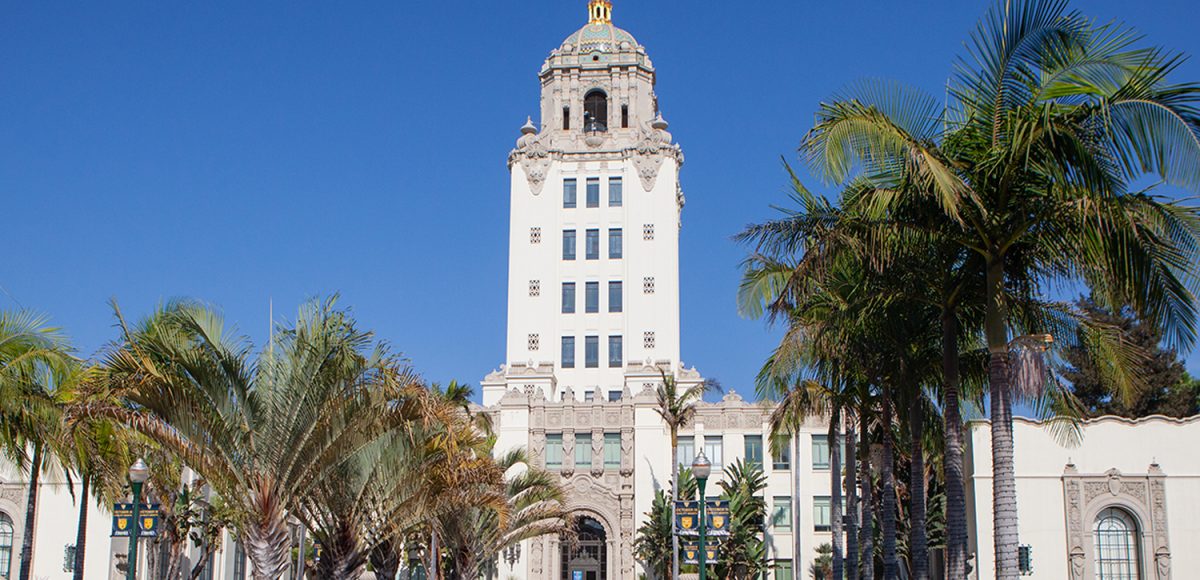As the hospitality industry faces an unprecedented crisis brought on by the COVID-19 pandemic, the Beverly Hills City Council unanimously supported a further deferral of the Transient Occupancy Tax (TOT). A hub of high-end tourism, Beverly Hills generates significant revenue from the TOT, which levies a charge on hotel guests within the City. With the City in the grips of the third wave of COVID-19 and tourism ground to a halt, the Council agreed to extend the tax relief for a third time to help its hotels.
“We’re a partner with these hotels,” Councilmember Lili Bosse said. “They’ve been a tremendous asset to us with TOT funding in the years past, and this year, things are really challenging. We need to be a partner with them, as well.”
On Dec. 3, with COVID-19 case numbers rising at alarming levels, California Gov. Gavin Newsom issued new Regional Stay At Home Orders. The orders place steep restrictions on hotels, which are only allowed to provide lodging for “critical infrastructure support.”
This includes travel for “work and study…economic services and supply chains, health, immediate medical care, and safety and security,” according to the California Department of Public Health. “Tourism” and “recreational” travel are not permitted.
Beverly Hills enjoys a high position on the list of desirable locations for international and inter-state travelers. The order, signed by Acting State Public Health Officer Dr. Eric Pan, laid out provisions for out of state travel: “Except as otherwise required by law, no hotel or lodging entity in California shall accept or honor out of state reservations for non-essential travel, unless the reservation is for at least the minimum time period required for quarantine and the persons identified in the reservation will quarantine in the hotel or lodging entity until after that time period has expired.”
While the hotel industry started to see some improvements after the summer surge, the unprecedented third wave of COVID-19 and the resulting restrictions have exacerbated the year’s struggles. Regional Stay At Home Orders effectively restrict all but essential travel, leaving hotel occupancy rates at dire levels. By Dec. 11, the hospitality industry saw more than 962 million vacant rooms as measured on a per night basis, Bloomberg News reported. This number will likely surpass $1 billion around Christmas, costing hotel owners around $46 billion in lost revenue.
Some hotels have found creative ways to work within the guidelines. The Beverly Hilton, for instance, advertises extended stays on a large banner facing Wilshire Boulevard. The banner promises “luxury living” for extended stays of “14 days or longer.”
Offer Nissenbaum, Managing Director of the Peninsula Hotel, painted a stark portrait of the situation facing his and other hotels in the City. “Obviously, with the recent stay at home order and the ban on anything but essential travel, cash flow for hotels has come to a complete halt,” he said. “It’s really a dire situation, so we would like to once again ask you for this consideration to defer the payments as asked.”
According to Director of Finance Jeff Muir, the deferral would not have a deep impact on the City’s coffers. “It would have a very minor impact on this year, but that would be effectively corrected in the following year,” he said. He provided a “back of the napkin” calculation of $6 to $8 million in lost revenue.
Councilmember Dr. Julian Gold noted the irony of the deferral. “So, the irony of this is because of the fact that the hotels have such a high vacancy rate, the actual dollar amount and impact to the City is diminished.”
Mayor Lester Friedman expressed his full support for the deferral and optimism for the future of the hospitality industry in the City. “Needless to say, I’m also supportive of it,” the Mayor said. “Hopefully the hotels will be robust with business in the latter part of the first quarter to the second quarter and we’ll be back on track.”







